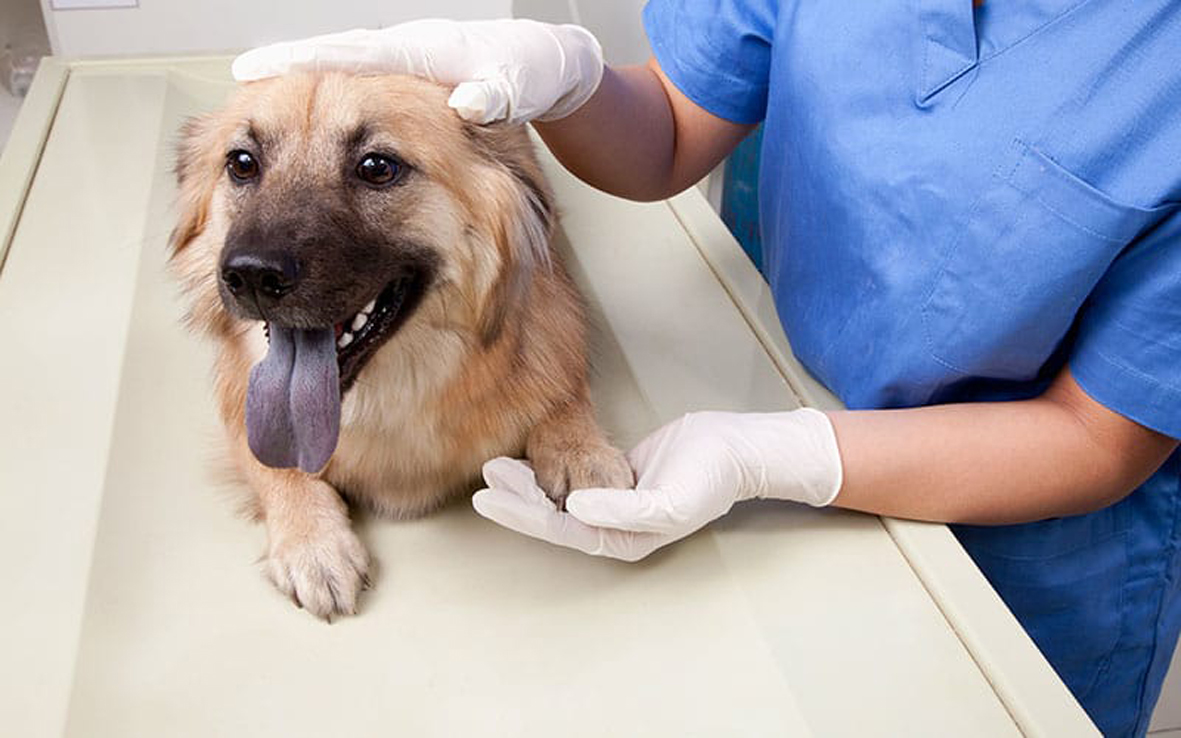Dr. Shruti Chhibber
Parvovirus is a highly infectious and common disease among domestic dogs causing gastroenteritis. Dogs of any age can be infected but young (6 weeks to 6 months old), unvaccinated dogs are most susceptible.
The stress of weaning can lead to a more severe case of parvovirus in puppies, as stress weakens the immune system. It is important for anyone dealing with puppies on a regular basis to be aware of the symptoms of parvovirus and what to do about it.
Parvovirus attacks the cells of dog’s intestines, therefore interfering with the ability to absorb the vital nutrients. This means that a dog or pup will become very weak and dehydrated. The virus is highly contagious and spreads from infected to healthy dogs easily as the virus is very hardy and survives in the environment for a long time. Infected dogs or pups shed the virus in faeces within 4-5 days of exposure (often before clinical sign develop), throughout the period of illness and for 10 days after clinical recovery. It is common for dogs to catch parvovirus infection when out for a walk, when visiting groomers. Food and water bowls, kennel, leashes, bedding, human clothes, shoes, car tires etc contaminated with affected dog’s vomit or stool can readily transmit the infection to healthy dogs.
Symptoms to look for parvovirus:
Common clinical signs include lethargy, loss of appetite, fever, vomiting and diarrhoea (often bloody). Vomiting and diarrohea combined with not eating or drinking well, often leads to severe dehydration, weakness and weight loss. Anaemia may develop due to blood loss in stool. Severity increases by factors like stress, unsanitary condition and secondary bacterial infection. If you suspect that your dog is having parvovirus infection then isolate your dog from the other dogs in the house (if you have) and should contact your vet immediately.
Treatment:-
There is no specific treatment available that can directly kill the virus in infected dogs. The main goal of the treatment is to restore the fluid imbalance and to stabilize the patient until the pup’s immune system can fight the virus as parvovirus weakens the immune system of the pups and lowers his white blood cell count. Your vet will provide supportive care to treat vomition, bloody diarrhoea and dehydration. Broad spectrum antibiotics are used to fight the secondary bacterial infections. Untreated cases of parvovirus infection have a mortality rate approaching 91%. With aggressive therapy, survival rates may approach 80-95%, a mortality rate of 5-20%.
Isolation of the infected dog is very important as it will help not to spread the virus to other healthy dogs or to new areas.
Prevention:-
* Vaccination against parvovirus is very important. Vaccination is recommended at 6-8, 10-12 and 14-16 wks of age, followed by booster at 1 yr later and then once in a year. It takes 3-5 days after vaccination to begin developing immunity.
* Do not allow the unvaccinated puppies to come in contact with other unvaccinated and unhealthy dogs. Dog parks and kennels have great potential to spread the infection, so avoid taking newly brought pups to there. Always be careful to not let your dog come in contact with stool of other dogs while walking outside.
* If you are getting a puppy from a breeder or any other place, then make sure that their first vaccination against parvovirus is done. Always ask for a vaccination card which will confirm that the pup has been vaccinated and when the next vaccination is due.
* Elimination of virus from infected premises is another important thing. The best and most effective disinfectant against parvovirus is bleach. Mix 1 part of bleach with 30 parts of water and apply it to floors, surfaces like walls, toys, bedding, food and water bowls
Some dogs may contract the parvovirus infection despite being vaccinated for the same. The reasons for this include:-
* Improper storage or administration of vaccines.
* Not injecting the vaccines at proper time which leads to gaps in immunity.
* It takes 3-5 days after vaccination to begin developing immunity in pups. Pups may get infected during this period.
Can humans catch parvovirus from dogs?
Humans cannot get parvovirus from the infected dogs but they can act as carrier and pass on the virus from one to another dog through their shoes, clothes or hands. Humans are infected with parvovirus but the strain of human parvovirus is different from the one that affects dogs and humans cannot pass the human parvovirus strain to dogs.
Parvovirus is a highly contagious and fatal disease with high mortality but it can be prevented by proper vaccination of pups at right age with effective vaccines.
Trending Now
E-Paper


